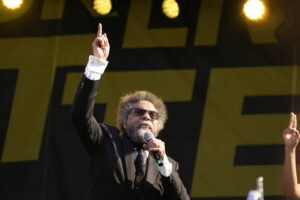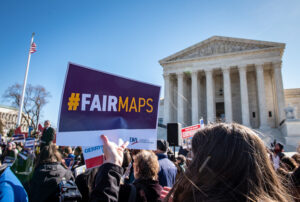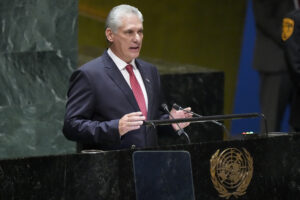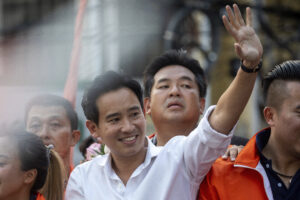If Only We Had More Sarge Shrivers
If Americans had really understood what was happening with the Peace Corps, we might be a much greater country today and the world might be a better place as well.Over the years, more than one Kennedy in-law has told me that there were obvious advantages to marrying into that blood-bonded family ever ready to take on the world, but that living with them was no picnic at the beach and you could get buried pretty deep in all that Irish mythology. R. Sargent Shriver was not one of the complainers; he was a man who would have made his own mark whatever his name or family.
Shriver, who married President Kennedy’s sister Eunice and managed the family-owned Chicago Merchandise Mart, that huge building along the Chicago River, was asked by his brother-in-law to create a uniquely American institution, the Peace Corps. The idea, casually mentioned by candidate Kennedy late at night during an October 1960 campaign rally at the University of Michigan, was that young Americans would go around the world and teach people to be like us.Shriver organized the thing in a month.As many as 15,000 young people a year were invited—the local government did the inviting—into villages and muddy fields and disease-generating swamps to work beside the poor locals and try to teach them about democracy, the English language and the American way.Didn’t work. Not like that anyway.Some schools and short bridges were built, some people learned a little more about sanitation and irrigation. Then the Americans went home.Kennedy was terribly proud of the idea. He once told Shriver’s assistant, Harris Wofford, that he would love to stand at the White House and watch a million corps members march off. That would have been great and Shriver probably could have done it, but the president never really understood what was happening. If he had, or other Americans had, we might be a much greater country today and the world might be a better place as well.It took me more than 20 years to figure it out. I was given some money by public television to collect old film of volunteers, then track them down and film them returning to the villages and nameless places they had been and see how life had changed because of their smarts and efforts. Well, in most cases, they had changed nothing—except themselves.© 2011 UNIVERSAL UCLICK
Your support matters…Independent journalism is under threat and overshadowed by heavily funded mainstream media.
You can help level the playing field. Become a member.
Your tax-deductible contribution keeps us digging beneath the headlines to give you thought-provoking, investigative reporting and analysis that unearths what's really happening- without compromise.
Give today to support our courageous, independent journalists.






You need to be a supporter to comment.
There are currently no responses to this article.
Be the first to respond.